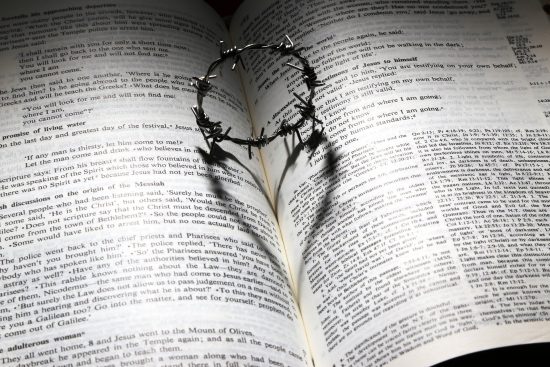Gospel Reflection – 23rd Sunday in Ordinary Time – The Cost of Discipleship
The Cost of Discipleship
Great crowds accompanied Jesus on his way and he turned and spoke to them. “If anyone comes to me without hating his father, mother, wife, children, brothers, sisters and his own life too, he cannot be my disciple” (Luke 14:1-2).
The size of the crowd did not impress Jesus. He could read their minds and intentions. Some were genuinely interested in what he taught, others came for healing, and some came out of curiosity. But also, there were those who thought he might be the Messiah who would ignite a political revolution to oppose Roman rule. And there were some who came to find fault with him and set a trap question. The time had come for Jesus to make it known to them that following him would be costly and demanding. There would be no half measures like an unfinished tower or going to war with half an army.
Discipleship needs the backbone of discipline
The Gospel of Luke which we follow this year is noted for its emphasis on mercy, gentleness and prayerfulness, yet this is no softly, softly writing as it asks for a discipleship with the backbone of discipline. “If anyone come to me without hating his father, mother, wife, children, brothers, sisters, yes and his own life too, he cannot be my disciple”. Does this surprise you? How could Jesus ask one to hate anybody, especially the family? When Luke was writing, many converts to Christianity were disowned by their family. Obviously, Jesus would want them continue to love their family but to hate what they stood for. St Francis and several other saints had to cope with huge opposition from their families in following their calling. Francis handed back the clothes he was wearing to his father saying, “Up to now I called Peter Bernardone my father, but from now on, only God is my father.”
The power of populism today
Courting popularity with great crowds was not on the agenda of Jesus. In the political world of today popular slogans have become more powerful than reasoned debate. Truth and morality are too serious to be left to the swings and sways of passing fashion and public opinion. The gospels give us an instance of the power of public opinion. That was the day when the voice of the people asked for the release of a noted criminal, Barabbas, while Jesus was condemned to death on the cross. In today’s First Reading it says, “The reasonings of mortals are unsure and our intentions unstable.”
The tree of death became the tree of redemption
Jesus, rejected by the opinion poll, took up the cross which would be the instrument of death but also the door to his resurrection. Before the death of Jesus, death on the cross was regarded as a terrible curse, but he defeated evil on its home pitch, as it were, and transformed the tree of death into the tree of new life. Where he has gone, his disciples are asked to follow. “Anyone who does not carry his cross and come after me cannot be my disciple.” Take the cross out of Christianity and what have you got? Á la carte picking and rejecting from Christ’s teaching. A pick and choose approach takes what one likes from religion but rejects what does not appeal. This is an age of permissiveness. This reminds me of a school retreat when a student disagreed with what the priest was saying. He replied that this was what Jesus said. To which the student responded, “Well, he was entitled to his opinion!” As Chesterton put it, when Jones says that he is following his conscience, then Jones is following Jones … which may not be the same as following Jesus. The teaching of Jesus is a solid rock to act as an unshakeable foundation for life.
Saint Paul preached a crucified Christ
Saint Paul found that the idea of a crucified Christ did not appeal to many people. “While the Jews demand miracles and the Greeks look for wisdom, we are preaching a crucified Christ, a Christ who is the power of God and the wisdom of God” (1 Cor 1:22-24). Elsewhere, Paul said that all he wanted was to know Jesus Christ in the power of his resurrection and in sharing his suffering by imitating the pattern of his crucifixion.
Sharing the pattern of the cross means accepting the unavoidable difficulties and pains of life while knowing that the crucified Christ is with us because he entered into solidarity with all who are suffering.
“Anyone who does not carry his cross and follow me cannot be my disciple” (Luke 14:33). One of Mother Teresa’s Sisters was heading out one morning to serve among the poor, but her face was the picture of sadness. Mother Teresa gently called her aside and asked her: “What did Jesus say, go in front of me or follow me?” The Sister replied, “Follow me”, and she began to smile. The Good News is that when suffering comes our way, when we have a cross to carry, Jesus is there in front of us, leading us, showing us and accompanying us. Make sure there is a crucifix in your home. Saint Francis used to call the crucifix a book. When you look at Jesus on the cross, you can read the story of Christ’s total self-giving out of love for us.
“How much do your love me, Lord?”
Then he opened his arms on the cross. “That’s how much I love you.”
Prayer of Saint Francis
We adore you, O Christ, and we bless you because by your holy cross you have redeemed the world.

